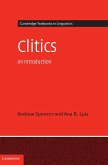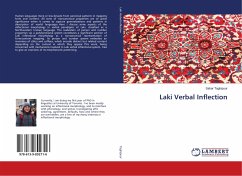This collective monograph is the first data-oriented, empirical in-depth study of the system of clitics on Bosnian, Croatian and Serbian. It fills the gap between the theoretical and normative literature by including solid data on variation found in dialects and spoken language and obtained from massive Web Corpora and speakers¿ acceptability judgements. The authors investigate three primary sources of variation: inventory, placement and morphonological processes. A separate part of the book is dedicated to the phenomenon of clitic climbing, the major challenge for any syntactic theory. The theory of complexity serves as the explanation for the very diverse constraints on clitic climbing established in the empirical studies. It allows to construct a series of hierarchies where the factors relevant for predicting clitic climbing interact with each other. Thus, the study pushes our understanding of clitics away from fine-grained descriptions and syntactic generalisations towards a probabilistic modelling of syntax.








